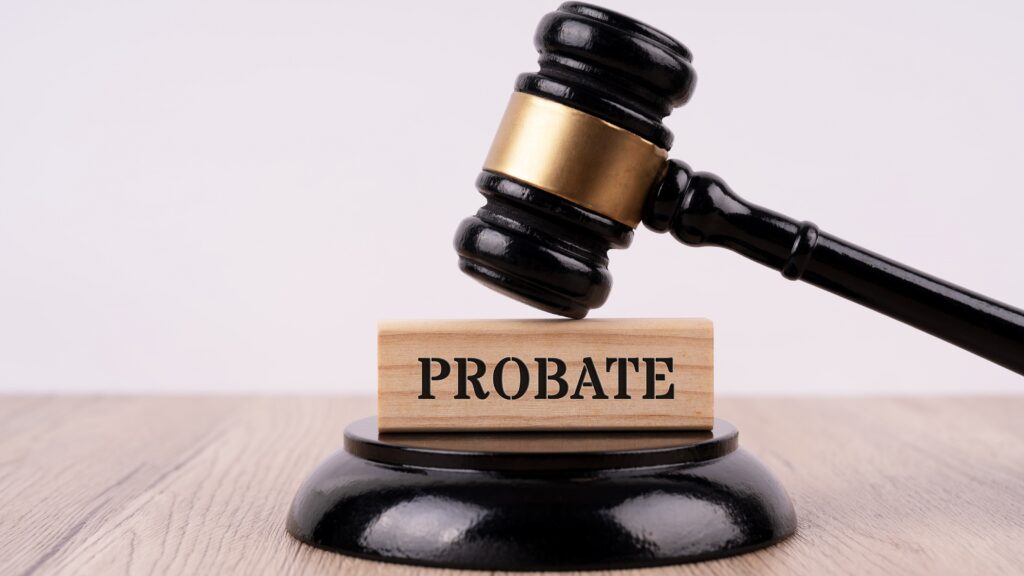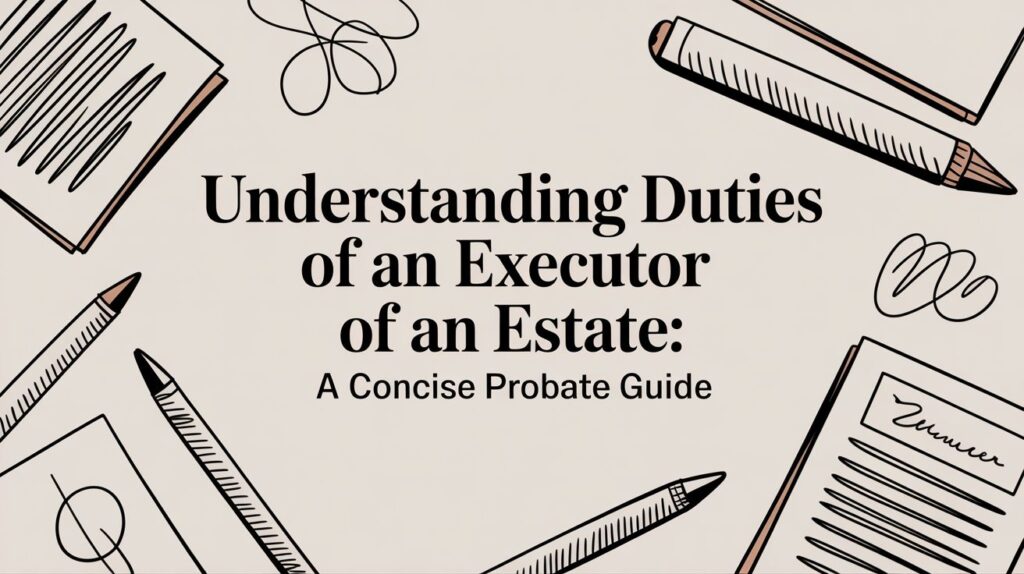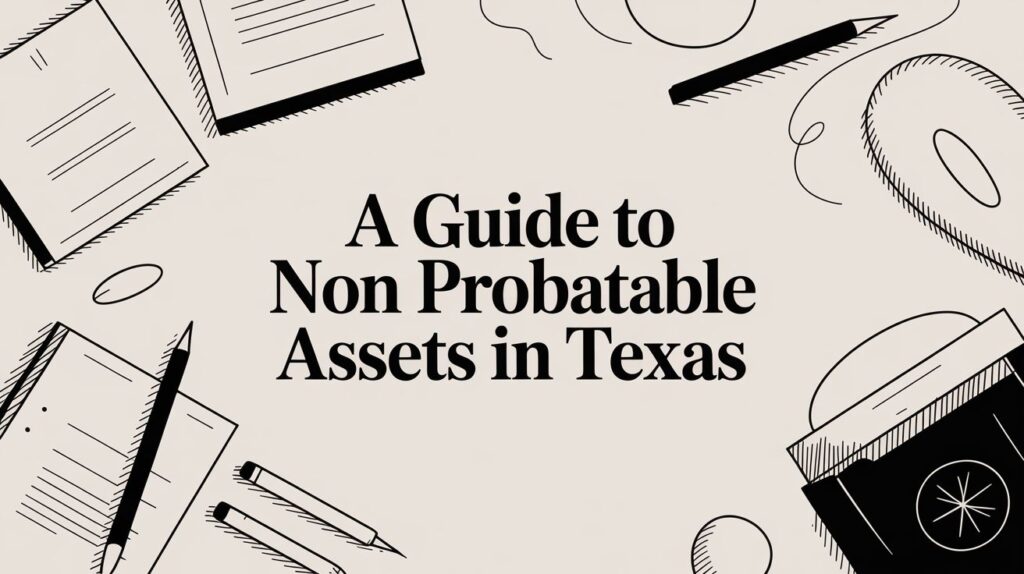Serving as an executor for an estate that includes a Texas ranch is both a significant responsibility and an emotionally charged role. Texas ranches, often passed down through generations, are more than just land; they are part of a family’s legacy, a working business, and a piece of Texas history. Whether the ranch has livestock, crops, oil, or simply vast acres of land, navigating the probate process for such a unique asset can be complex. In this comprehensive guide, we’ll explore what probate entails for Texas ranches, your role as an executor, the challenges you might face, and how to ensure a smooth transition of ownership in compliance with Texas probate law.
Understanding Texas Probate Law
Before diving into the specifics of handling a ranch, it’s crucial to understand the probate process in Texas. Probate is the legal process that occurs after someone dies, during which their assets are distributed according to the will (or by law, if there is no will). As the executor, you’ll oversee this process.
Types of Probate in Texas

- Independent Administration: This is the most common and preferred form of probate in Texas. It gives the executor more freedom, with fewer court appearances, and allows for quicker estate administration.
- Dependent Administration: This involves more oversight from the court and is more restrictive. Every decision, including the sale of assets, must be approved by the court.
- Muniment of Title:This is used when the estate consists primarily of land, such as a ranch, and has no significant debts. It allows for the transfer of title without full probate administration.
Understanding which type of probate applies to the ranch estate is crucial because it will affect how you manage the assets and distribute the property.
Your Role as Executor for a Texas Ranch
As the executor, you are legally responsible for managing and distributing the deceased’s estate. When a ranch is involved, this role comes with added complexities, ranging from handling the land itself to dealing with livestock, equipment, and possibly oil or mineral rights.
Key responsibilities include:
Filing the Will and Initiating Probate: After the death, the will must be submitted to the probate court in the county where the deceased lived. If there’s no will, the estate is divided according to Texas intestacy laws.
Inventorying the Ranch Assets: You must create a comprehensive inventory of the ranch’s assets, including:
- Land: Acres, boundaries, and any structures like homes, barns, or other buildings.
- Livestock and Equipment: Horses, cattle, farming tools, machinery, etc.
- Crops: Any current or future crops that may be harvested.
- Water Rights: Texas ranches often include water rights, which may need to be transferred.
- Mineral Rights: Texas is rich in oil and gas, and many ranches include mineral rights that generate income. It’s essential to accurately assess the value of the ranch assets to determine how they will be distributed among the heirs.
Paying Debts and Taxes: Before the estate can be distributed, any outstanding debts and taxes must be settled. This may include property taxes, business debts, or income taxes.
Maintaining the Ranch During Probate: The probate process can take several months, and during this time, you are responsible for maintaining the ranch. This might involve managing ranch hands, keeping up with livestock needs, and ensuring the property remains in good condition. If the ranch is generating income (through crops, cattle sales, or leases), you’ll need to handle the financial aspects as well.

Challenges Unique to Texas Ranch Probate
Probating a Texas ranch estate presents unique challenges compared to a typical home or urban property. Below are some of the most common issues you might face:
Valuation of Ranch Assets
One of the first challenges is determining the fair market value of the ranch. This involves appraising not only the land but also any improvements (buildings, roads, fences), livestock, crops, and equipment. You may need to hire professionals such as real estate appraisers, livestock experts, and equipment evaluators to get an accurate value.
Additionally, if the ranch has oil, gas, or mineral rights, these can significantly increase the value of the estate. A mineral rights attorney or appraiser may need to be involved to assess the value of any leases or royalties.
Managing Heir Disputes
When it comes to family-owned ranches, emotions can run high. If multiple heirs are entitled to a share of the ranch, disagreements about how to divide the property or whether to sell it can arise. Some heirs may want to keep the ranch in the family, while others might prefer to sell it for cash.
As the executor, your role is to remain neutral and ensure that the decedent’s wishes are honored. If disputes become particularly heated, you may need to involve a mediator or the probate court to resolve the issue.
Dealing with Debt Against the Ranch
Many ranches come with significant debt, whether from mortgages, loans taken out to purchase equipment, or operational expenses. You must determine whether the estate can pay off these debts or if assets (such as livestock or equipment) need to be sold to satisfy creditors.
In some cases, the ranch itself may need to be sold to cover the estate’s debts. If this happens, it’s essential to work with a real estate agent familiar with ranch sales in Texas to ensure the property sells for its full value.
Special Considerations for Texas Ranches
Handling probate for a Texas ranch involves specific legal and logistical issues that might not arise with other types of real estate.
Land Use Agreements and Conservation Easements
Some ranches in Texas are subject to land use agreements or conservation easements. These agreements limit how the land can be developed or used to preserve its natural resources. If the ranch is subject to such an agreement, it may affect how the property is sold or transferred.
Oil and Mineral Rights
Texas ranches often include oil and mineral rights, which can be separate from the land itself. If the deceased owned mineral rights, you’ll need to determine how these are to be managed or distributed. In many cases, mineral rights are leased to oil or gas companies, generating income for the estate. Be sure to consult with an attorney familiar with Texas oil and gas law to ensure these rights are handled properly.
Water Rights and Access
Water is a precious commodity in Texas, and many ranches have specific water rights attached to them. You’ll need to determine whether these rights transfer with the property or if they are subject to separate agreements. Additionally, if the ranch has rivers, creeks, or ponds, maintaining these water sources during probate can be essential for the health of livestock and the value of the land.
Agricultural Exemptions
Texas offers agricultural exemptions for property taxes, which can significantly reduce the estate’s tax burden. However, to maintain these exemptions, the land must continue to be used for agricultural purposes, such as cattle ranching or crop production. As executor, you’ll need to ensure that these activities continue during probate or risk losing the exemption.
Selling or Transferring the Ranch
After debts have been settled and assets have been inventoried, it’s time to distribute the ranch according to the will. There are several ways this can play out:

- Selling the Ranch:. If the will specifies that the ranch is to be sold, or if the heirs agree to sell, you’ll need to prepare the property for sale. This includes working with real estate professionals, appraisers, and possibly an auction house if there are valuable assets.
- Transferring Ownership to Heirs:. If the ranch is to be kept within the family, you’ll oversee the transfer of title to the heirs. This may involve dividing the property, creating new ownership agreements, or setting up trusts to manage the land.
- Partial Sale or Lease:. In some cases, the ranch may be partially sold or leased to cover debts while retaining family ownership. For example, the land could be leased for oil production, cattle grazing, or crop farming, providing ongoing income for the heirs.
Working with Legal and Financial Experts
Probating a Texas ranch can be a complex process. As such, it’s essential to have the right team of professionals on your side. This includes:
- Probate Attorney:A lawyer familiar with Texas probate law can guide you through the legal requirements and help resolve disputes.
- Real Estate Agent: If the ranch is to be sold, a real estate agent with experience in ranch properties is invaluable.
- CPA or Tax Professional: A certified public accountant can help with the estate’s taxes, including any issues related to agricultural exemptions or capital gains from the sale of the property.
- Appraisers: You’ll need professionals to appraise the land, livestock, equipment, and mineral rights to determine their value.
Conclusion: Ensuring a Smooth Probate for Texas Ranch EstatesFinal Thoughts
Handling probate for a Texas ranch is a weighty responsibility. However, it can also be a rewarding experience with the right approach. As executor, you play a role in ensuring that the ranch’s legacy is preserved, whether it’s passed on or sold. By understanding the intricacies of Texas probate law, working with knowledgeable professionals, and maintaining open communication with heirs, you can confidently navigate this process.
Ultimately, your goal is to honor the deceased’s wishes while ensuring that the estate is administered efficiently and fairly. In doing so, you’ll fulfill your legal obligations. You’ll also help maintain the spirit and tradition of Texas ranching for years to come.








